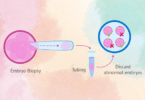Down Syndrome, a chromosomal disorder, presents unique challenges and considerations for expectant parents. It’s a common genetic condition that can impact a child’s physical and cognitive development, emphasizing the importance of early detection. Prenatal screening plays a pivotal role in identifying the likelihood of Down Syndrome, helping parents prepare and make informed decisions regarding their pregnancy.
In this context, understanding the procedure of having blood drawn to test for Down Syndrome is vital. This article is designed to guide you through the process, focusing on what to expect when you undergo this essential screening. We aim to provide clear, concise information, ensuring you are well-prepared and informed about the significance and steps involved in blood drawn to test for Down Syndrome.
Understanding Down Syndrome Screening
Prenatal Down Syndrome screening is an integral part of expectant care, designed to evaluate the likelihood of this genetic condition in the developing baby. These screenings are pivotal in early pregnancy for informed planning and maintenance. Here’s a brief overview of what these screenings entail:
- General Down Syndrome Screening
This involves initial tests to estimate the risk of the infant being born with Down Syndrome. These screenings are typically the first step in prenatal care and are crucial for early intervention planning.
- Broader Prenatal Testing for Down Syndrome
This includes a more comprehensive set of tests that may encompass detailed blood work and ultrasounds. These tests provide a more in-depth risk assessment and are vital for detecting potential genetic abnormalities early in pregnancy.
Remember, these screenings are not diagnostic but essential tools for risk assessment and subsequent decision-making in prenatal care.
Types of Prenatal Screening Tests for Down Syndrome
Exploring the various types of prenatal screening tests available for Down Syndrome is crucial for expectant parents. Each test offers unique insights, contributing to a comprehensive understanding of potential risks. Let’s delve into the different screening methods.
Several types of screening tests are available:
- Non-Invasive Prenatal Testing (NIPT)
A blood test that can discover Down Syndrome with high accuracy.
- First-Trimester Screening
Combines a blood test alongside an ultrasound to evaluate risk.
- Second-Trimester Screening
A blood test that looks for specific indicators in the mother’s blood.
- Combined Test
Integrates first and second-trimester tests for a comprehensive risk assessment.
The Blood Draw Procedure
Undergoing a blood draw for Down Syndrome screening is a simple and swift procedure. It involves the following steps, ensuring comfort and efficiency throughout the process:
- Preparation
A healthcare provider will explain the procedure, addressing any questions or concerns you might have.
- Site Selection
A comfortable seating position is provided, and the arm is chosen, usually with more visible veins.
- Cleaning the Area
The chosen area on your arm is cleaned with an antiseptic to prevent infection.
- Inserting the Needle
A small needle is inserted into a vein. You may feel a quick pinch or sting.
- Collecting Blood
Blood is drawn within a vial or syringe. This step is usually completed within a few minutes.
- Needle Removal
After collecting enough blood, the needle is carefully removed, and a small bandage is applied to the site.
- Post-Procedure Care
You’ll be advised to keep the bandage on briefly and give any necessary post-procedure instructions.
Each step is performed with utmost care to ensure your comfort and the accuracy of the test results.
Preparing for the Blood Test
Preparing for a blood test is straightforward, but a few simple steps can make the experience smoother and more comfortable, especially when it’s a test for Down Syndrome screening.
Here’s what you can do:
- Stay Hydrated
Drink plenty of water before the test. Hydration can make your veins more accessible, and the blood draw easier.
- Wear Appropriate Clothing
Choose an outfit with sleeves that are easy to roll up, providing uncomplicated access to your arm.
- Inform About Needle Anxiety
If needles make you nervous, let your healthcare provider know. They can offer support and strategies to help ease your anxiety.
- Eat a Healthy Meal
Unless instructed otherwise, have a balanced meal before the test. This can help prevent lightheadedness.
- Relax
Stay calm and relaxed—deep breathing or listening to calming music before the test can help.
By following these steps, you can ensure that your experience with the blood test for Down Syndrome screening is as comfortable and stress-free as possible.
Understanding Results
Interpreting the results of Down Syndrome screening tests is crucial for expectant parents. These tests offer a risk assessment rather than a definitive diagnosis, and understanding their implications can help you make informed decisions about further testing and care.
Key points to remember include:
- Risk Assessment, Not Diagnosis
The primary purpose of these tests is to evaluate the risk of the baby having Down Syndrome. They do not provide a definitive diagnosis.
- Higher Risk Indication
If the results show a higher risk of Down Syndrome, it doesn’t mean the baby has the condition. It indicates the need for further evaluation.
- Recommendation for Diagnostic Tests
Your healthcare provider might suggest additional diagnostic tests, such as amniocentesis or chorionic villus sampling, depending on the screening results for a more accurate diagnosis.
Understanding these aspects of the screening results ensures that you are better prepared for the next steps in your prenatal journey.
The Significance of Maternal Serum Screening
Maternal serum screening is not just a routine procedure in prenatal care; it’s a crucial tool for early detection of potential chromosomal abnormalities, including Down Syndrome. This test provides invaluable insights, enabling expectant parents and healthcare professionals to make informed decisions.
Here’s what makes it so significant:
- Early Detection
Maternal serum screening helps detect the likelihood of Down Syndrome early in the pregnancy. This early insight is critical for planning and decision-making.
- Non-Invasive
The test involves blood drawn from the mother, posing no risk to the baby.
- Indicator of Other Conditions
Besides Down Syndrome, this screening can also indicate the risk of other chromosomal abnormalities.
- Guidance for Further Testing
If the results indicate a higher risk, it guides healthcare providers in recommending more specific diagnostic tests.
Through these points, maternal serum screening is essential to prenatal health, offering peace of mind and direction during the crucial early stages of pregnancy.
Risks and Considerations
The process of undergoing prenatal screening for Down Syndrome, while generally safe, carries specific considerations that should be considered. Expectant parents need to be aware of these aspects:
- Emotional Impact
Receiving results from Down Syndrome screening can be emotionally challenging. Prepare for any outcome and consider seeking support from family, friends, or counseling services.
- Decision Making
The results may lead to significant decisions regarding your pregnancy. Discussing all potential outcomes and options with your healthcare provider is crucial.
- Physical Risks
Although rare, blood draws can sometimes lead to minor complications such as bruising or lightheadedness. Inform your healthcare provider if you have a history of difficulties with blood draws.
- Anxiety and Stress
The anticipation of screening results can be stressful. Engage in relaxation techniques or discuss your fears with a professional if needed.
Understanding these factors helps make the screening process as informed and comfortable as possible.
Empowering Insights: Wrapping Up Down Syndrome Screening
In conclusion, understanding the screening process for Down Syndrome is a vital step in prenatal care. It empowers expectant parents with knowledge and preparation, ensuring the best care for both mother and baby.
Take the Next Step in Your Prenatal Journey
Ready to learn more about prenatal screening for Down Syndrome? Visit Momguard Thailand for comprehensive information and support on your journey towards informed parenthood.
Prioritize the health of your unborn child. Contact our clinic to schedule a Down Syndrome screening and gain peace of mind during your pregnancy.






